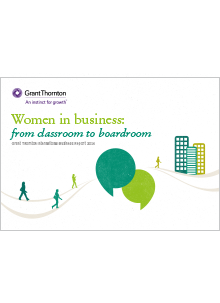-
Audit approach
Designing a tailored audit programme customised for your business, we will combine the…
-
Audit methodology
We have adopted Grant Thornton International's Horizon audit approach and Voyager software, a…
-
MFRS
At Grant Thornton, our MFRS advisers can help you navigate the complexity of financial reporting.
-
Our local experts
Our local experts
-
Tax advisory & compliance
Our teams can prepare corporate tax files and ruling requests, support you with deferrals, accounting…
-
Corporate & individual tax
Our teams can prepare corporate tax files and ruling requests, support you with deferrals, accounting…
-
International tax & Global mobility services
Our teams have in-depth knowledge of the relationship between domestic and international tax laws.
-
Indirect tax
Our indirect tax specialists help clients in effective planning; assist to bring clarity to the legislation;…
-
Tax audit & investigation
Tax audit and investigation
-
Transfer pricing
Transfer pricing
-
M&A, Restructuring & Forensics
Forensic
-
Corporate finance
Whether you are raising capital, disposing of a business or seeking a wider market for your company's…
-
Business risk services
We can help you identify, understand and manage potential risks to safeguard your business and…
-
Recovery and reorganisation
We provide a wide range of services to recovery and reorganisation professionals, companies and their…
-
Our values
We have six CLEARR values that underpin our culture and are embedded in everything we do.
-
Learning & development
At Grant Thornton we believe learning and development opportunities help to unlock your…
-
In the community
Many Grant Thornton member firms provide a range of inspirational and generous services to the…
-
Internship
Internship
-
Internship
Internship
Annual women in business tracker finds little change at the top of the corporate ladder
24%: that is the proportion of the most senior roles in businesses across the globe held by women.
We have been tracking this figure over the past decade and are sorry to report there has been no significant movement. In fact, the figure is unchanged from 2013, and the same as 2009 and 2007, suggesting that women’s ascent up the corporate ladder has returned to its ‘natural level’ following the financial crisis, during which women were disproportionately hit.

The debate about women’s in business leadership continues with quotas for the proportion of women on boards in the EU a very real prospect. But is legislation the answer? This year’s research found that business support for quotas increased globally to 45%, up from 37% 12 months ago. But the data also presented a number of actions businesses could take to support the career paths of women:
- improve mentoring: fewer than one in four companies globally (24%) run (or are considering running) a specific programme to promote women’s leadership.
- relieve childcare burden: just 18% businesses globally provide childcare vouchers, 16% provide a salary increase (which might make returning to work more financially viable) and 6% provide on-site childcare facilities.
- hire more female graduates: in an average year, just 21% of the graduates mid-market businesses hire are women. This will help unpack the current male bias around hiring and promotion that is key to increasing diversity.
The 2014 women in business report, ‘From classroom to boardroom’, follows the careers paths of women across the globe, asking where the key barriers are and how these can be overcome. Key highlights include:
- the education of girls is empowering and boosts economic growth; more and more girls are getting into education, with massive strides made in the developing world
- there are now more women studying in tertiary education than men across the globe, although they still lag behind men in south Asia and sub-Saharan Africa
- just one-in-five graduate hires around the world is a woman, severely limiting the odds of women reaching the top of the corporate ladder
- gender pay gaps are wide and exist at all levels of seniority, with even women leading global companies paid less than their male peers
- relatively few businesses offer working mother tangible benefits to alleviate the burden of childcare
More information:
- Support for boardroom quotas grows (press release)
- The rise of the female CEO (press release)
- Diversity in decision making (blog)
- Why is Borgen failing? (blog)

